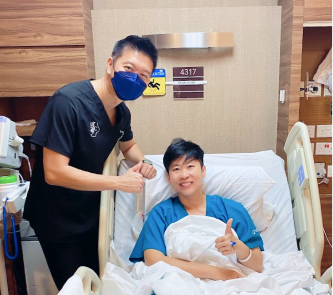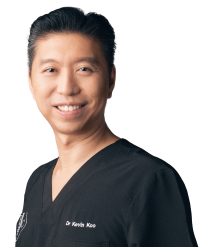The Comprehensive Guide to Orthopaedics
Orthopaedics is the branch of medicine that deals with the diagnosis, treatment, and prevention of musculoskeletal conditions. The musculoskeletal system consists of the bones, muscles, tendons, ligaments, and joints, all of which provide structure, support and movement to the body.
What Are the Subspecialty Areas of Orthopaedics?
Singapore orthopaedics is a medical specialty that can be further categorized into subspecialties such as:
- Sports Medicine: This focuses on the diagnosis and treatment of injuries sustained during sports activities.
- Hip and Knee: This focuses on the treatment of musculoskeletal problems in the hip and knee, such as fractures, arthritis, and dislocations.
- Foot and Ankle: This treats conditions that affect the structure and function of muscles and joints on the feet and ankle, which may be acute, congenital or degenerative in nature.
- Hand: This focuses on restoring fine motor skills and reducing pain and weakness in the hand. Conditions include trigger finger, nerve injuries, carpal tunnel syndrome, and hand fractures.
- Paediatric Orthopaedics: Babies, children, and teenagers with musculoskeletal problems arising from congenital diseases or injuries fall under this category.
- Shoulder and Elbow: This subspecialty diagnoses and treats musculoskeletal conditions of the shoulders and elbow, often arising from overuse or trauma.
- Spine: This subspecialty focuses on the treatment of spinal injuries and congenital disorders such as scoliosis, herniated discs and spinal arthritis.
- Joint Replacement: Due to ageing or injuries, the joints in the knee, hip and shoulder can become damaged to the point of requiring a joint replacement.
- Trauma Surgery: Many orthopaedic injuries arise from traumatic events such as falls, accidents and collisions. Emergency orthopaedic surgery in Singapore can help to repair serious fractures and other soft tissue injuries effectively.
Who Are Orthopaedic Surgeons?
Orthopaedic surgeons are doctors who specialise in identifying, managing, and treating various musculoskeletal problems, including injuries and disorders of the bones, joints, ligaments, muscles and tendons.
Orthopaedic surgeons can utilise both non-surgical and surgical methods to restore function and alleviate pain in their patients. In terms of orthopaedic surgery, this usually revolves around joint replacements, fracture repairs, soft tissue surgeries, and reconstructive surgeries.
How to Find the Right Orthopaedic Specialist for You?
With numerous orthopaedic surgery clinics in Singapore, it is important for patients to find one that can address their problems and best meet their needs and preferences. They can check for referrals, and look up their online reviews to see what former patients have to say about their experience. Patients may also read about the orthopaedic surgeon’s accreditation, training and professional experience online. Finally, you may also wish to check with the clinic or your insurance to see if the clinic accepts your particular insurance, or if your procedure can be covered.
What are Some Common Orthopaedic Conditions Seen?
- Osteoarthritis: This is a degenerative joint disease that results in the breakdown of cartilage, leading to pain, stiffness, and limited mobility.
- Herniated Disc: A ruptured or herniated disc in the spine can cause back pain, sciatica (pain radiating down one’s legs).
- Rotator Cuff Tear: This refers to a tear in the tendons of the shoulder (known as the rotator cuff), resulting in pain, weakness, and difficulty moving one’s arm.
- Bone Fractures: Broken bones commonly occur following a traumatic event, and usually require surgery to realign and stabilize the bone to facilitate proper healing.
- Ligament Tears (e.g. ACL Tear): Ligament tears of the knee or other joints are very common and usually arise from injury or sports-related accidents.
- Spinal Stenosis: This refers to the narrowing of the spinal canal, which compresses nerves and causes pain, numbness, and weakness in the back and limbs.
- Scoliosis: This occurs when the spine curves sideways, which may require surgery to correct if it is severe to the point of affecting function and causing pain.
- Degenerative Disc Disease: This refers to the deterioration of the discs of the spine, causing back pain and possibly nerve compression.
- Carpal Tunnel Syndrome: This refers to the compression of the median nerve in the wrist, which causes pain, tingling, and weakness in the hand and fingers.
What Can You Expect at an Orthopaedic Visit?
During the consultation, the doctor will first assess the patient’s overall health and medical history, and ask the patient about the symptoms that he or she is experiencing, as well as anything that might have led to the problem (e.g. past injury, accident, rigorous exercise).
This will be followed by a physical examination, which may include assessing the affected area’s range of motion and severity of symptoms, be it pain or weakness, etc.
Finally, the doctor may recommend that the patient undergo imaging tests, such as an X -ray, CT scan or MRI, in order to confirm his diagnosis.


| Tel. | : +65 6970 5905 |
| Fax | : +65 6970 5906 |
| Mobile | : +65 9898 7781 |
| : hello@bjc.sg, drkevinkoo@bjc.sg |
| Mon - FriMonday -Friday | : 8:30am to 5:30pm |
| Sat, Sun and PHSaturday, Sunday & PH | : Closed |
Well-being: Our Focus at
The Bone & Joint Centre.
We know that getting back to the activities you love is what truly matters. We are committed to providing high-quality, compassionate care to help you regain the ability to live life to the fullest.
Call us at 9898 7781 or fill out the form below and we will
get in touch as soon as possible.
| Tel. | : +65 6970 5905 |
| Fax | : +65 6970 5906 |
| Mobile | : +65 9898 7781 |
| : hello@bjc.sg, drkevinkoo@bjc.sg |
| Mon - FriMonday -Friday | : 8:30am to 5:30pm |
| Sat, Sun and PHSaturday, Sunday & PH | : Closed |





